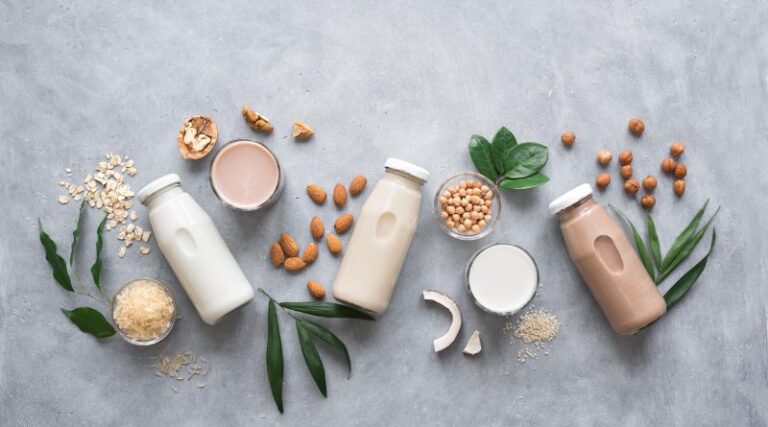Oat milk has surged in popularity in recent years, becoming a staple in many households, coffee shops, and cafes. Known for its creamy texture and mild flavor, this plant-based milk alternative appeals to those who are lactose intolerant, vegan, or simply looking to reduce their dairy intake. In this article, we’ll explore what oat milk is, its nutritional benefits, how it’s made, and its impact on health and the environment.
Table of Contents
What is Oat Milk?
Oat milk is a dairy-free beverage made by soaking and blending oats with water, then straining the mixture to remove solids. The result is a smooth, creamy liquid that can be used in various ways, from pouring over cereal to adding to coffee or smoothies. Oat milk is typically fortified with vitamins and minerals, making it a nutritious option for many.
How is Oat Milk Made?
1. Ingredients
The basic ingredients for homemade oat milk include:
- Rolled or steel-cut oats: Whole grain oats provide the base for the milk.
- Water: Used to blend with the oats.
- Optional flavorings: Sweeteners like maple syrup, vanilla extract, or a pinch of salt can enhance the flavor.
2. Preparation Process
Making oat milk at home involves a few simple steps:
- Soaking: Oats are soaked in water for about 30 minutes to soften them.
- Blending: The soaked oats are blended with fresh water until smooth.
- Straining: The mixture is then strained through a cheesecloth or fine mesh strainer to separate the liquid from the oat pulp.
- Storing: The strained oat milk can be stored in the refrigerator for up to a week.
Nutritional Benefits of Oat Milk
Oat milk offers several health benefits, making it an attractive option for many:
1. Low in Allergens
Oat milk is naturally free from lactose, nuts, and soy, making it a safe choice for those with food allergies or intolerances.
2. Rich in Nutrients
Oat milk is often fortified with essential nutrients such as calcium, vitamin D, and vitamin B12, providing similar benefits to cow’s milk. It also contains beta-glucans, a type of soluble fiber that may help lower cholesterol levels and support heart health.
3. Good Source of Energy
Oats are a source of carbohydrates, providing energy. Oat milk can be a suitable option for those needing a quick energy boost.
Environmental Impact
The production of oat milk is generally more sustainable compared to dairy milk and some other plant-based alternatives. Here are a few reasons why:
- Lower Water Usage: Oats require significantly less water to grow than almonds or dairy cows, making oat milk a more environmentally friendly option.
- Reduced Greenhouse Gas Emissions: The carbon footprint of oat milk production is lower than that of dairy milk, contributing less to climate change.
- Sustainable Farming Practices: Oats can be grown in a variety of climates and are often part of sustainable agricultural practices.
FAQs About Oat Milk
1. Is oat milk gluten-free?
Oat milk itself is gluten-free, but it can be cross-contaminated with gluten during processing. Look for brands that specifically label their oat milk as gluten-free if you have a gluten intolerance or celiac disease.
2. How does oat milk compare to cow’s milk nutritionally?
Oat milk is generally lower in protein than cow’s milk but is often fortified with calcium and vitamins. It’s higher in carbohydrates due to the natural sugars in oats, making it a good source of energy.
3. Can I make oat milk at home?
Yes! Making oat milk at home is simple and requires just oats, water, and optional flavorings. You can easily customize the taste to your liking.
4. Does oat milk work well in coffee?
Yes, oat milk froths well, making it a popular choice for lattes and cappuccinos. It has a creamy texture that pairs nicely with coffee.
5. How long does oat milk last?
Homemade oat milk typically lasts about 4 to 7 days in the refrigerator. Store-bought oat milk can last longer due to preservatives, so always check the expiration date.
Conclusion
Oat milk has established itself as a popular and versatile plant-based beverage, offering a delicious alternative to dairy milk. With its rich nutrient profile, environmental benefits, and creamy texture, it’s no wonder that oat milk has found a place in the hearts (and kitchens) of many. Whether you’re lactose intolerant, vegan, or just looking to try something new, oat milk is worth considering as part of a balanced diet.

